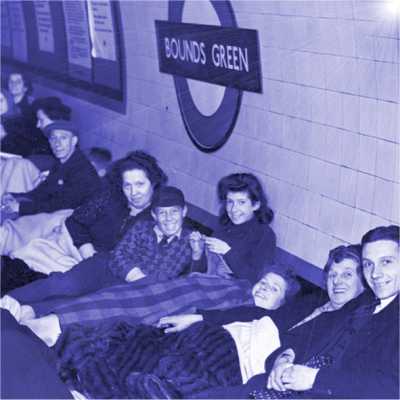
During the Second World War, London and other major UK cities were systematically bombed to weaken resistance and break morale before a planned invasion. What became known as the Blitz started on September 7th, 1940 and continued for another 57 days of unrelenting terror and destruction. The dominant social psychology theories of the day assumed that society would crumble into anarchy and chaos and that people would quickly feel helpless, confused, and defeated. What happened was the opposite, as the population worked together to care for the injured and repair the damage with a shared purpose and camaraderie.
Although the Blitz was a time of crisis from the past, we face many different challenges today. We emerged out of the global pandemic but now experience the impact of war on the international stage, economic challenges, mass migration of refugees, and the global climate crisis, which are all linked together.
Back in our distant past, we lived in small groups as nomadic foragers for tens of thousands of years. During that time, the archaeological and anthropological evidence is that we were friendly and open to strangers, there was managed equality between group members, we had an intimate connection with the natural world, and that we were relatively peaceful and healthy. Then around ten thousand years ago we started to settle and make claims to areas of land as early farmers.
It’s from this point that strong individuals grabbed power and warfare began. In his 2020 book, “Human kind”, Rutger Gregman points out that, like our ancient ancestors, humans are fundamentally peaceful, kind, and generous. The book traces our deep historic path to the difficult times we find ourselves in today, with the climate crisis and global pandemic. Part of the challenge is about bringing the same primal human qualities of our ancient ancestors into the modern world of today. Even in the past few years, we have experienced positive change. From taking our relationship with the environment more seriously, important challenges to inequality, to greater awareness of the food we eat.
Share on
